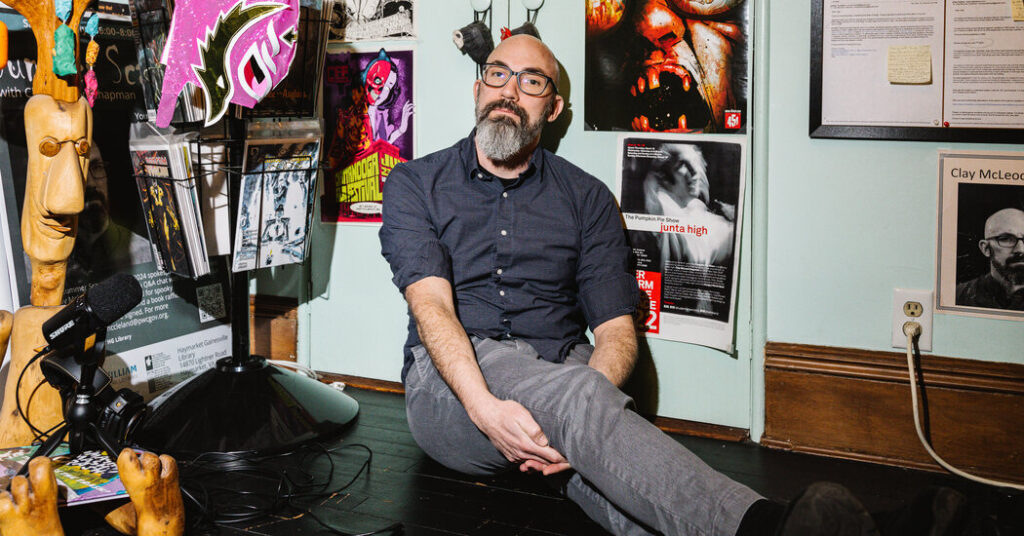Did you tell your parents what the book was about?
I did. Two weeks ago.
Two weeks ago.
I kept stalling. We had a half-hour to go before leaving from the holidays, and I was like, guys, maybe you shouldn’t read this one. They understood. My mom, God love her, wants to support and be a loving parent. But it’s just not for her. My stepfather inherited a surly, punkish teen dude. I don’t know what they did to deserve me writing this book. But that’s the icky turmoil that comes with politics at the dinner table.
Will they read it?
I hope not, for their sakes.
What motivated you to mix horror with politics?
If Sam Raimi directed the Jan. 6 riots, that’s what I envisioned — chaos, anarchy, kinetic energy. I feel like I screamed for 400 pages. Watching the Capitol be immersed by bodies, an assault of people not turning back, a wave that’s not going to stop for the vice president or police officers — that was the moment I said, if I’m going to write this type of book, it has to have that level of trauma.
George Romero’s spirit lives in the story even though the monsters aren’t quite the undead.
I love systems collapsing and nobody knows what the heck is going on. The laws of civil society are gone, decorum is gone. Papa George gave us a template that’s going to be durable for decades.
A question about subtlety: Fax News.
I was the first to do the eye roll. It’s so on the nose. But you have to be. The time to go gonzo is here.
Did any books get under your skin as inspiration?
Sara Gran’s “Come Closer,” in its economy of language, in that you feel every moment of a possession. There’s “A Head Full of Ghosts,” by Paul Tremblay, because, in his ambiguous way, you can never say for certain whether the girl actually is possessed. The third one is a cheat: “Pontypool,” a triptych of novels [by Tony Burgess]. He began this idea of a zombie plague by way of words.


